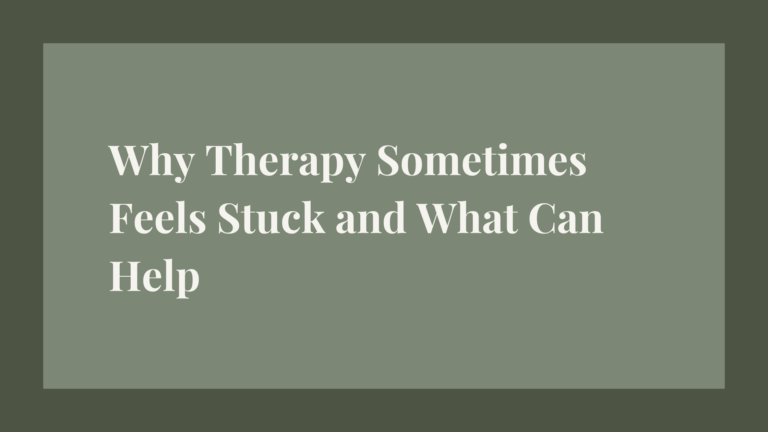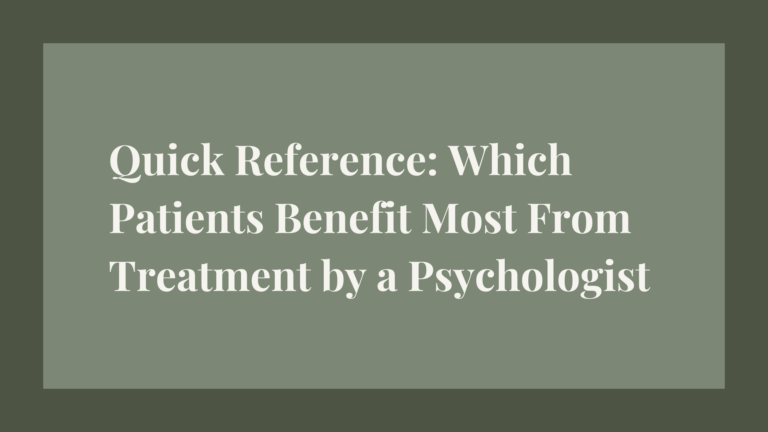The Link Between Borderline Personality Disorder and Eating Disorders
Introduction: Navigating life with a mental health condition can be challenging, and when more than one condition is present, the experience can feel overwhelming. For…
Introduction:
Navigating life with a mental health condition can be challenging, and when more than one condition is present, the experience can feel overwhelming. For individuals living with borderline personality disorder (BPD), the emotional highs and lows are often intense, making day-to-day life difficult. When paired with an eating disorder, these challenges can multiply, impacting both emotional and physical well-being.
Understanding the connection between BPD and eating disorders is essential to offering the right support. Whether you’re personally affected or know someone who is, it’s important to know that recovery is possible with the right care and a compassionate approach. In this post, we’ll explore how these conditions intersect, how they influence one another, and what treatments are available to support those experiencing this co-occurrence.
What is Borderline Personality Disorder (BPD)?
Borderline Personality Disorder (BPD) is a mental health condition characterised by difficulty regulating emotions, leading to intense mood swings, feelings of instability, and challenges in maintaining relationships. People with BPD often experience an overwhelming fear of abandonment, which can result in behaviours aimed at avoiding rejection or isolation. These emotional struggles may feel like a rollercoaster—sudden shifts from feeling secure to feeling deeply insecure or misunderstood.
Key symptoms of BPD include impulsive actions, difficulty managing anger, a distorted self-image, and chronic feelings of emptiness. Many individuals with BPD describe feeling as though they lack a stable sense of self, which can contribute to risky behaviours or intense efforts to gain approval from others. While the experience of BPD varies from person to person, emotional dysregulation remains at the core of the disorder.
Understanding Eating Disorders
Eating disorders are complex conditions that affect both mental and physical health, and they involve an intense focus on body weight, food, or shape. While there are several types of eating disorders, three of the most common include:
- Anorexia Nervosa: Characterised by extreme food restriction and fear of gaining weight, leading to significant weight loss and health risks.
- Bulimia Nervosa: Involves cycles of binge eating followed by purging behaviours, such as vomiting or excessive exercise, in an attempt to control weight.
- Binge Eating Disorder: Defined by episodes of consuming large quantities of food, often quickly and to the point of discomfort, without subsequent purging behaviours.
Eating disorders impact not only physical health—through malnutrition, weight changes, and related complications—but also emotional well-being. Individuals often struggle with a distorted body image, a preoccupation with food or weight, and feelings of shame or guilt. These disorders can feel isolating, and the pressure to meet perceived societal standards can exacerbate feelings of worthlessness or anxiety.
If left untreated, eating disorders can lead to serious physical health complications, including heart problems, bone density loss, and digestive issues. The emotional toll can be just as significant, with many individuals feeling trapped in a cycle of disordered eating behaviours that seem impossible to break.
The Link Between BPD and Eating Disorders
Borderline Personality Disorder (BPD) and eating disorders often coexist, creating a complex set of challenges for those affected. Research has shown that individuals with BPD are more likely to experience an eating disorder than those without the condition. But what connects these two seemingly different mental health disorders?
Both BPD and eating disorders share a key characteristic: difficulties with emotional regulation. In BPD, emotions can shift rapidly and feel overwhelming, making it hard to find balance. Similarly, eating disorders often emerge as a way to cope with these extreme emotions. For some, controlling food intake becomes a method of exerting control when other areas of life feel unpredictable or chaotic. Others might engage in binge eating as a way to numb or distract from emotional pain. The urge to manage emotions through food or body image can become a cycle that feels impossible to break.
Another factor that links BPD and eating disorders is impulsivity. In BPD, individuals may act impulsively when they are feeling distressed or emotional, which can manifest as binge eating, purging, or restrictive behaviours. The lack of a stable self-identity in BPD can also lead to a distorted perception of one’s body, further fueling the behaviours seen in eating disorders.
Restrictive eating, binging, or purging behaviours may also represent self-harm from a BPD lens. In these cases the acts are may be seen as ways to “punish” the self, or to elicit a hormonal response (e.g. dopamine) that is pleasant following the eating behaviour.
While these conditions can feed off each other, creating a challenging dynamic for the individual, understanding this connection is key to creating an effective treatment plan. The good news is that both conditions can be managed with the right therapeutic interventions.
Why Early Intervention is Important
The combination of BPD and an eating disorder can have serious long-term consequences if left untreated. Individuals with co-occurring BPD and eating disorders are at a higher risk for physical health problems due to the strain of disordered eating on the body. Nutritional imbalances, digestive issues, and heart problems are just a few potential complications. Additionally, the emotional toll of managing both conditions can lead to worsening mental health, including an increased risk of depression, anxiety, and self-harm.
Early intervention is essential for preventing these outcomes and helping individuals find relief from the emotional turmoil. Seeking help at the earliest signs of a co-occurring condition can significantly improve one’s chances of recovery. By addressing both the emotional regulation issues associated with BPD and the disordered eating patterns, treatment becomes more holistic and effective.
It’s also important to recognise that treatment for these conditions isn’t about placing blame or shame. Both BPD and eating disorders often stem from deep-rooted emotional pain, trauma, or unresolved life experiences. When these underlying issues are brought into the light and treated with compassion, individuals can find healthier ways to cope and build a more stable, fulfilling life.
How Therapy Can Help
For individuals experiencing both BPD and an eating disorder, therapy offers a path toward healing and managing these complex conditions. Since emotional regulation is a core issue in both disorders, treatments that focus on understanding and managing emotions are particularly effective.
Dialectical Behavior Therapy (DBT), developed specifically for individuals with BPD, is one of the most commonly recommended treatments. DBT helps individuals learn skills to manage intense emotions, reduce impulsive behaviours, and improve relationships. This therapy focuses on mindfulness, distress tolerance, emotional regulation, and interpersonal effectiveness—key areas that can help reduce both BPD symptoms and disordered eating behaviours.
For the eating disorder itself, Cognitive Behavioral Therapy for Eating Disorders (CBT-E) is often used. This approach helps individuals identify and challenge distorted thoughts and beliefs about food, body image, and self-worth. By developing healthier coping mechanisms, individuals can learn to manage urges related to eating and regain control over their lives.
An integrative treatment approach is essential when both conditions coexist. Therapy must address the emotional dysregulation of BPD while also tackling the specific behaviours and thoughts that drive the eating disorder. By treating both conditions simultaneously, individuals are more likely to experience lasting recovery, rather than focusing on one aspect of their mental health at the expense of the other.
Conclusion:
If you or someone you know is struggling with both borderline personality disorder and an eating disorder, it’s important to remember that help is available. The journey to recovery may feel daunting, but with the right therapeutic support, individuals can learn to manage their emotions and behaviours, leading to a healthier and more balanced life.
At Regenerative Psychology, we offer individually tailored care for those dealing with complex mental health challenges. Our compassionate team is here to provide evidence-based treatments like DBT and CBT-E to support individuals in finding relief and long-term stability. You don’t have to navigate this journey alone—reach out today to explore how we can help.






